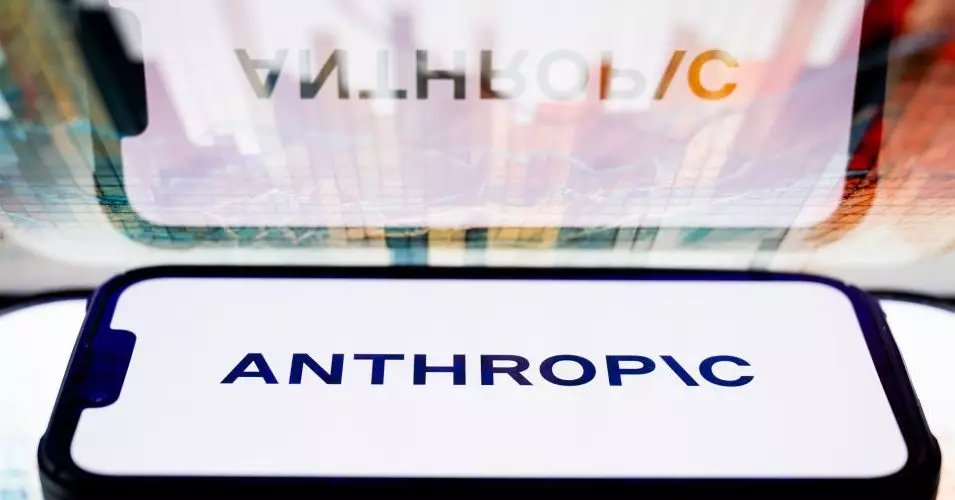In a groundbreaking turn of events, Anthropic has emerged victorious in a legal confrontation that tests the boundaries of intellectual property rights in the realm of artificial intelligence (AI). A recent ruling could change the landscape for numerous ongoing copyright lawsuits across the United States, suggesting that the legal framework must adapt to accommodate new technological realities. A federal court has affirmed that the company’s training of AI models using copyrighted materials qualifies as “fair use,” a doctrine that has often shielded educational and research activities from legal repercussions under copyright laws. The decision arrived from Senior District Judge William Alsup, who underscored the significance of transformative use in determining the legality of Anthropic’s methods.
Understanding Fair Use in the AI Context
The court’s ruling emphasizes the criteria used to establish “transformative use.” Traditionally, this principle seeks to differentiate between usages that merely replicate original works and those that create something new and distinct. Judge Alsup contends that the technology employed by Anthropic represents one of the most transformative advancements of our era. This interpretation raises subtle, yet crucial questions about what constitutes originality in the age of AI. In many ways, this ruling is a nod to progression—an acknowledgment that generative AI holds the potential to innovate rather than simply replicate existing cultural artifacts.
With technological advancements accelerating at an unprecedented pace, the legal system is faced with a pressing challenge: how to evaluate the emerging complexities of AI-generated content within the existing copyright framework. Alsup’s remarks that human memories and computer training processes should be treated similarly challenge long-held assumptions about the fundamental differences between human and machine learning. While his perspective may initially seem contentious, it indicates an evolving understanding of how AI fits into the broader tapestry of intellectual collaboration and originality.
A Double-Edged Sword: Implications for Copyright Holders
Despite the ruling’s positive implications for companies like Anthropic, significant caution is warranted; the legal victory is not entirely unblemished. Aberrations in Anthropic’s practices raise serious ethical questions. The court established that, while their AI training practices met the fair use standard, Anthropic nonetheless retained a massive library of pirated works. This outside legal framework could cast a long shadow on the company’s ethical standing and impacts the wider tech industry as it grapples with similar issues. While the court allows for a trial aimed at determining the ramifications of utilizing pirated content, it conveys an unsettling message: even in an era of transformative innovations, companies must tread carefully and ensure respect for the rights of original creators.
The trial focused on whether Anthropic’s use of these pirated materials constituted a form of theft rather than an honest pursuit of innovation. Authors involved in the case, represented in the class-action suit filed by Bartz v. Anthropic, argued that their rights were undermined by Anthropic’s initial collection of stolen works. Thus, while AI may be recognized for fostering creativity and offering breakthroughs, the path towards a harmonious relationship between innovation and copyright must be walked with mindfulness toward the rights of creators.
The Broader Legal Landscape: A Call for Updated Frameworks
Anthropic’s landmark ruling has far-reaching implications beyond its own business operations. The interpretation of fair use within the context of AI training could serve as a precedent for future cases, potentially providing tech companies with a more defined legal route for utilizing copyrighted materials. Nevertheless, the conversation does not end here; it raises the issue of whether existing copyright laws are equipped to handle the unique challenges posed by AI technology effectively.
With technologies continuously evolving, and with AI shaping every facet of content creation, lawmakers and legal professionals must engage in a deliberative dialogue on reforming copyright laws to reflect contemporary practices. The needs of copyright creators, AI developers, and consumers must be balanced in a manner that promotes innovation while safeguarding the rights of those who contribute original works. Courts are now confronted with the complex interplay of tradition and modernity in a technological world that operates at a different pace, requiring a delicate recalibration of legal norms.
As the dust settles on the Anthropic case, the implications will undoubtedly ripple through the tech industry, urging stakeholders to reconsider their own practices and reinforcing the necessity for a thoughtful approach to copyright law in the age of AI.

